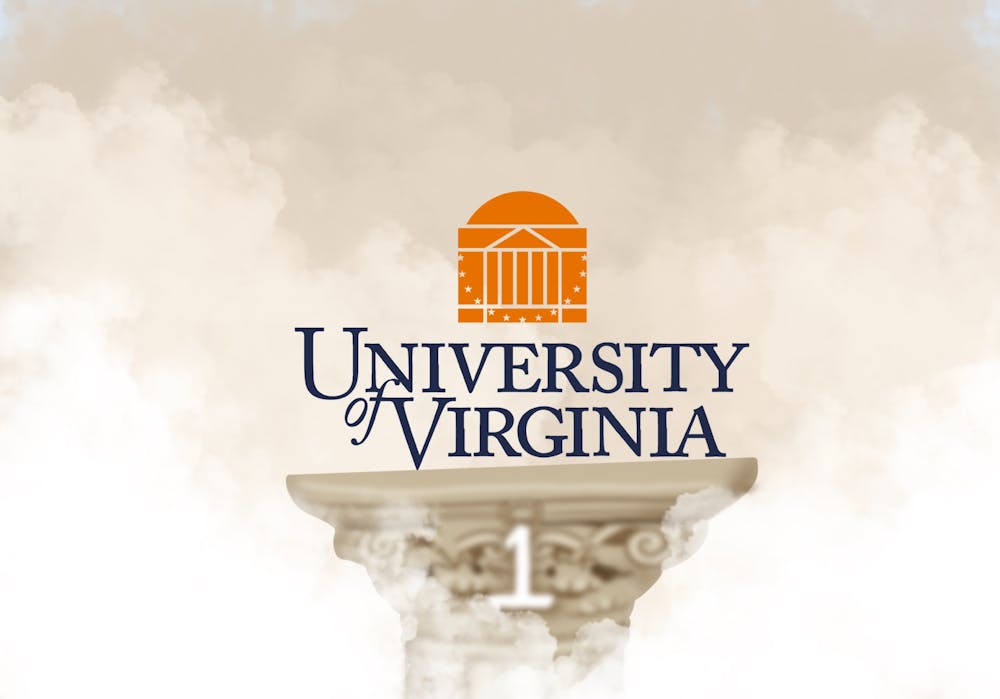Oh how the mighty have fallen. The University has dropped from third best public university in the nation to fifth, according to the U.S. News & World Report 2024 College rankings. At first glance, this news may seem disappointing, but given the ranking system’s questionable criteria — the news should solicit little more than indifference. If rankings must play a role in shaping public perception of the University, administrators should focus their attention on climbing ranking systems that do not incentivize unnecessary competition and ineffective academic practices, but rather encourage educational institutions to improve the quality of academics offered to students.
The U.S. News & World Report 2023 College rankings relies on reputational data, which is formally collected through peer assessments and not always quantitative metrics. The University has publicly claimed that it acknowledges the shortcomings of the college rankings system, yet the it also continues to leverage the rankings in its recruitment and outreach efforts. College rankings, at least as they are done by U.S. News & World Report, provide the wrong set of incentives for higher education — cultivating unhealthy competition among universities and creating an environment that is susceptible to cheating, deceit and a false display of education quality.
The pressure caused by this rankings system to be prestigious is further exemplified by a self-reinforcing “halo effect” within it — when public opinion about a certain college is overwhelmingly positive, this positive regard is given to the various academic departments within said college, regardless of their actual quality. A survey conducted by the National Academy of Sciences, for example, found that participants rated Princeton’s undergraduate business department highly. The catch? Princeton doesn’t have an undergraduate business department.
The ranking system also tends to favor schools that invest heavily in research, perhaps to a detrimental degree — there is a strong, positive correlation between the amount of money a school spends on research and their placement in these ranking systems. Let me clear — the University is one of the premier research institutions in the nation, so research is an integral and attractive aspect of our institution to both students and professors. Even still, the U.S. News & World rankings system creates an incentive to promote more research than might really be necessary to help students apply their classroom learning. The University encourages pumping out research in major publications, which helps to improve their reputation, and thus, ranking. This incentive structure harms students by motivating professors to hunt for more grant money instead of improving the quality of education they offer to students.
Despite their deleterious effects, these rankings are so important to institutions that universities are sometimes caught being dishonest in their reports to US News. Columbia lied about their class sizes and how many of their faculty held high degrees, causing their rank to drop from the top 5 to 25. The University of Southern California is being sued by students alleging that one of its offshoot campuses knowingly ignored information about graduate students when submitting their data in order to boost the school’s standing.
The solution to this problem is a difficult one to stomach — we must abandon the U.S. News ranking system. If rankings must play a role in the University’s quest to craft a positive public perception, we should instead opt for rankings, like the one published by Forbes, that do not create incentive to spend in categories that do not support students’ education. Forbes focuses on “impressive graduation rates, high graduate salaries and great outcomes for low-income students,” among other aspects. Doing so would allow the University to spend its vast resources on academic and professional endeavors that students express need for — instead of major publications research, there could be more research opportunities with professors on projects that help both students and the public. The opportunities are virtually endless.
One may argue, however, that if we abandon the U.S. News & World Report ranking system, some of the prestige we have built from it may be lost, causing a decline in alumni donations — a major concern to be sure. In general, however, concerns about a decline in our prestige are simply misguided. The University is already a prestigious institution and students will want to attend a school that is dedicated, first and foremost, to providing the highest caliber education it is capable of offering. Our worth can and should be judged based on what the University is able to do for its students, not its place on some arbitrary list.
Eliminating the incentive to spend inefficiently as a consequence of the U.S. News & World Report ranking system will open doors to improving this institution of higher education that we all love so much. When U.S. News releases its 2025 rankings, there should be no heartbreak — there shouldn’t even be celebration. While others might remain grounded in their antiquated ideas of quality, the University must advance further in its education.
Paul Kurtzweil is an Opinion Columnist who writes about Econ, Business and Housing for The Cavalier Daily. He can be reached at opinion@cavalierdaily.com.







